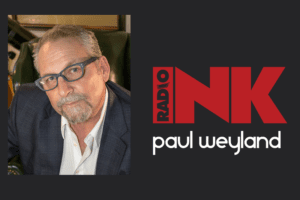Many doctors and dentists feel that radio or television advertising “cheapens” their professions and that it is beneath them to promote their skills. Yet at the same time, these same medical professionals have no problem advertising in the Yellow Pages or in those little magazines you only see in doctors’ offices. You know, the ones where the entire staff dressed in white coats is lined up in front of the MRI machine, smiling maniacally?
I remind physicians that they did take the ‘Hypocritical’ Oath and that they promised to “do no harm”, so why not do the right thing and teach consumers how to avoid some of the diseases and injuries that come their way? In other words, use their depth of knowledge and skills to teach people to be healthier? That’s not advertising, it’s a public service. Teach the people to recognize the symptoms of say, high blood pressure, or diabetes. Discuss the proper ways to brush teeth so people can avoid root canals. Talk about the dangers of Human papillomavirus and other dangerous ailments.
A skeptical endodontist (root canal specialist) recently listened to me (with his arms crossed) as I emphasized the incredible lack of basic consumer knowledge about proper dental care. “People are pretty ignorant when it comes to basic oral care, are they not?” I asked. He started opening up and said that it was indeed horrible, that he’s seeing so many cases of children with baby teeth needing root canals and fillings. I asked him why, and he went off on a rant about kids drinking out of sippy cups. “I don’t have a problem with children drinking juice or milk, but I have a huge problem with juice or milk in sippy cups,” he said. “Juice or milk in a regular cup is fine because the child drinks it up fast. But in a sippy cup, it takes much longer and the teeth are exposed to the acids that attract the bacteria that attack the tooth enamel.”
The more we talked, the more information he gave me. “Cup your hand and breathe into it,” he said. “If you smell something bad, that’s infection. And, you don’t want infection in your head,” he continued. “And, if you’re smelling that, that’s what other people are smelling when they are close to you. Maybe that’s why people back up when you’re talking to them.” “Wow,” I thought. “He’s making commercials without scripts. On a radio or television station, he’d look like the leading authority with these tips on better oral care.”
The more he talked, the more convinced he became that I was correct, somebody in his field should take the lead and talk about these things in a public way. He brought up issues that would make good water-cooler conversation. “What do you think is better for your children’s teeth, chocolate or raisins?” or, “Did you know that if you’re right-handed, the left side of your mouth is always cleaner?” or, “People think that the best time to bring a child in for braces is when they reach middle school, but we’d really prefer to see them when they are nine or ten.” All of these subjects would be great ways to lead into commercials, wouldn’t you say? He talked about people who think using those new plastic toothpicks with the tiny brushes on the ends absolves them from flossing. “No, that’s a cop-out because you’re not getting in between the tops of the teeth, where they touch and bacteria thrive.”
He also ranted about parents allowing children to brush their teeth unsupervised, the pros and cons of electric brushes, and the dangers of grinding your teeth. We hear his views on teeth whitening. I ask him about the latest dental scourge, and he says, “It used to be ‘meth mouth’, but now we’re seeing people with horrific problems because they are addicted to energy drinks. There is so much acid in that stuff that their teeth are just crumbling out.”
By the time we finished our conversation, he was just about ready to become the public dentistry advocate on a TV station. Here’s what closed him.
I suggested that he make these commercials, without scripts, explaining that he does root canals, but he wanted to help people avoid having to have one. Then he tackles a specific afore-mentioned subject and then…tag each commercial by publically thanking a couple of the general practice dentists that regularly refer business to him. Yes, like other medical specialists most of his business sent to him by other doctors. They might appreciate him saying, “I’d like to personally thank Drs. Green and Schaeffer for providing excellent general dentistry to the people here in the Dallas area. Thank you, doctors.” He rotates tags to include all of the general practitioners he works with.
Who else is publically thanking the people that send him business? This way, he advertises without sounding like he’s advertising, he gives people the information they need to take better care of themselves, he’s promoting dentistry in general and he’s publically thanking the people he needs the most.
This creative technique works with any health care professional, but especially with specialists. Try framing your conversations with doctors this way and catch a long-term fish or two. Oh, and remember, you only have to floss the teeth you want to keep.

Paul, A while ago you had a dissertation on all the bad radio cliches that are used commonly when writting ad copy. Can you email me those copy cliches. I’d like to share them with my sales team.
Thank you